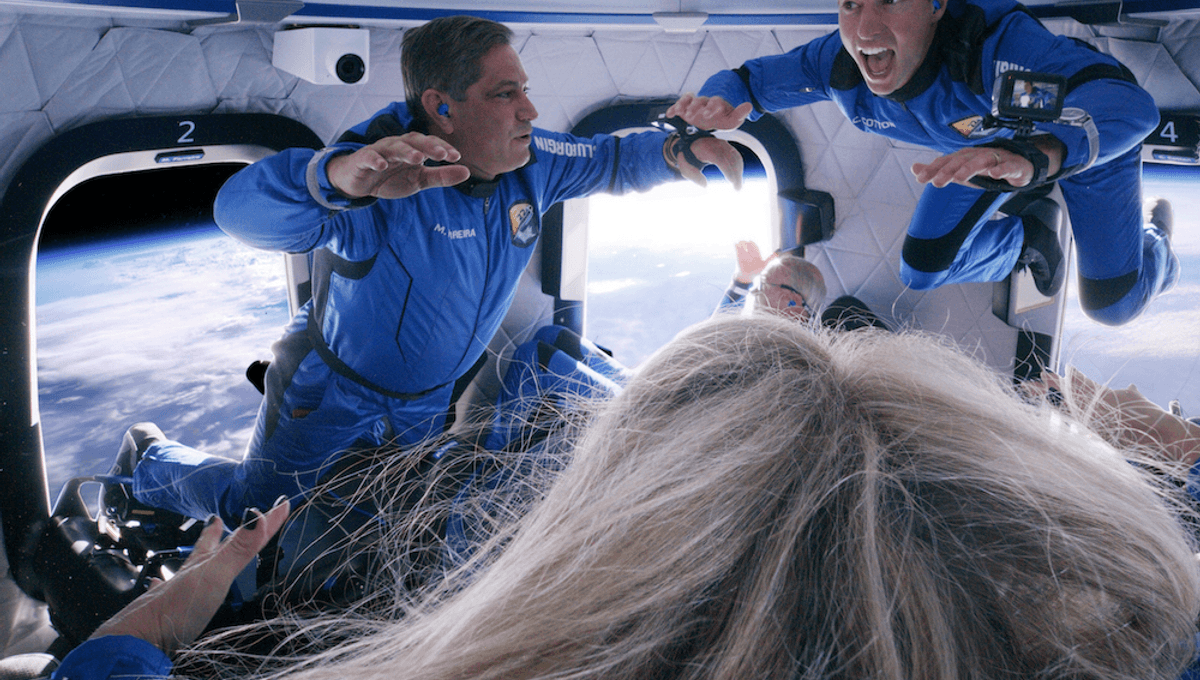
In an effort to get in before the damage starts, 25 experts from many fields have released proposed guidelines on ethical research in space by commercial operators. They note that with private flights to space expected to rise almost as fast as the rockets themselves, not everyone going into space will be a tourist. If the International Space Station shuts down in 2030 as planned, research in Low Earth Orbit could be left to private companies more interested in profits than ethics. If there aren’t rules on how research can be done in microgravity, the results could be alarming.
The history of science contains some ugly examples of research practices that would never get past ethics committees today. It’s taken systematic reform to change that. There’s a danger that people who don’t care about the welfare of their research subjects, be they animal or human, will take advantage of the lack of jurisdiction to do things unlikely to be allowed back home.
“What are the rules for someone who’s involved in a private company going to space?” said Professor Timothy Caulfield of the University of Alberta in a statement. “A NASA astronaut is obligated to follow research ethics rules because they are publicly funded initiatives. We’re now getting into a situation where it’s far less clear what rules need to be followed; we need to do research to make sure space flight is safe.”
Caulfield was part of a group attempting to kick off the process of establishing rules governments have so far failed to create. A meeting last year at the Cold Spring Harbor Laboratory – where eight Nobel Prize winners have been based – included space health researchers and government regulators, as well as ethicists, experts in health policy, and representatives of commercial space programs.
Together they drafted a set of principles on responsible space research, although whether the companies will agree to be bound by the principles their employees helped draft remains to be seen. Caulfield notes it is hard to enforce rules when experiments take place outside the territory of any nation.
The United Nations has an Outer Space Treaty, which has been ratified by 112 countries, including all spacefaring nations – but Saudi Arabia withdrew this year, showing just how fragile international law is when governments don’t want to comply. It’s not even clear whether for-profit companies are even covered, The Artemis Accords extend the Treaty, calling for transparency as well as the peaceful use of space, but only the US and its allies have signed on.
The guidelines are based around four principles: social responsibility, scientific excellence, proportionality, and global stewardship. Rather than breaking new ground, they seek to emphasize the aspects of best practices on Earth that will be most relevant in space.
More specifically, the authors note commercial space operations are only possible because of the vast sums the US government has invested in developing technologies now in use. It is only fair that the public at large benefits from whatever companies using that technology learn.
On Earth, bad science has a way of getting found out when others try to reproduce findings. That won’t be so easy when very few people will have access to microgravity laboratories. Practices that should be standard but are frequently skipped, like data sharing and registering tests beforehand, become much more important when there are few opportunities for a do-over.
Science often requires risk, but the guidelines stress the importance that any dangers, whether to astronauts or the planet, not be out of proportion to the benefits that may be gained.
Finally, they argue; “Spaceflight research should therefore engage, and be conducted by, individuals and communities representative of humankind’s diversity.”
Although there is a long way to go to fill in all the details, Caulfield and the other authors call for the establishment of research ethics committees that include members with the specialist knowledge required. They also note how unrepresentative commercial space companies have so far been in terms of the human population at large and for this to be addressed among those assessing the ethics of future research programs.
A statement outlining the guidelines has been published in the journal Science, but somewhat ironically given the stress on transparency, it is paywalled aside from an abstract.
Source Link: Guidelines Proposed For Ethical Commercial Research In Space